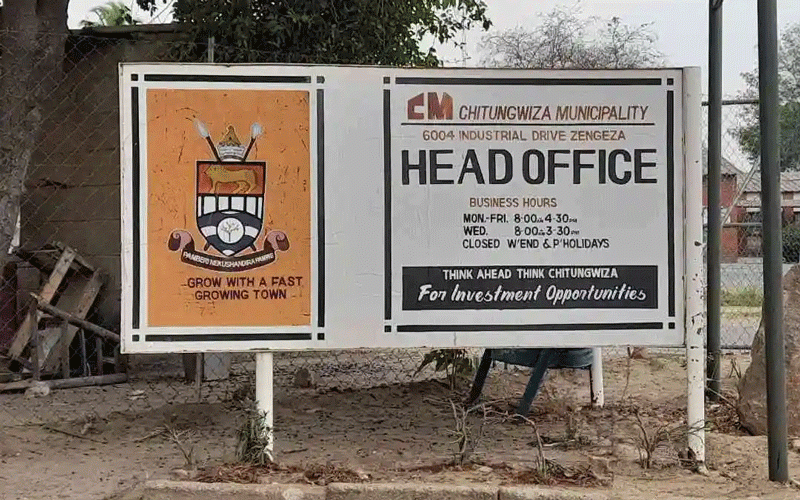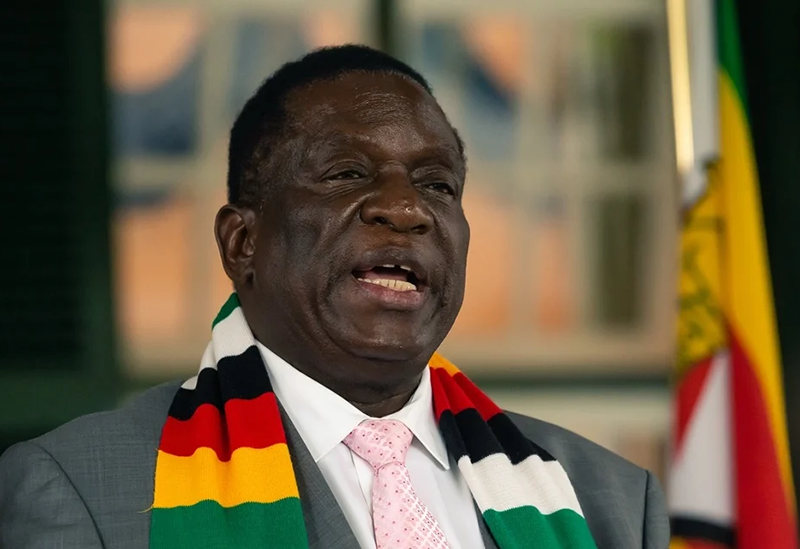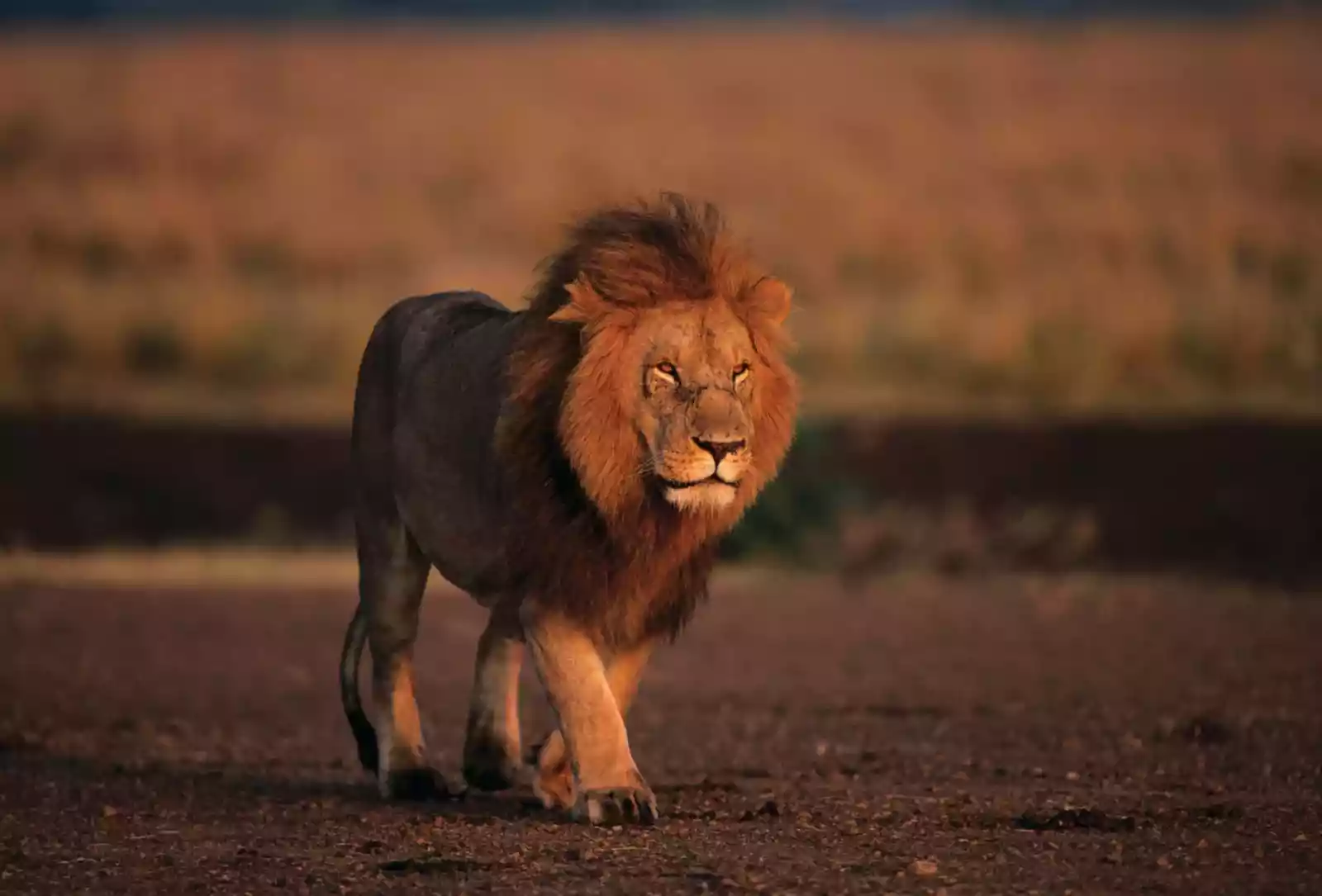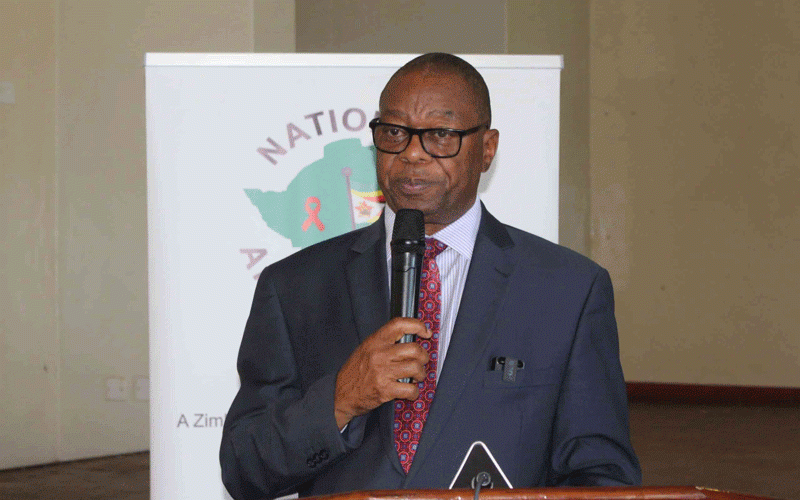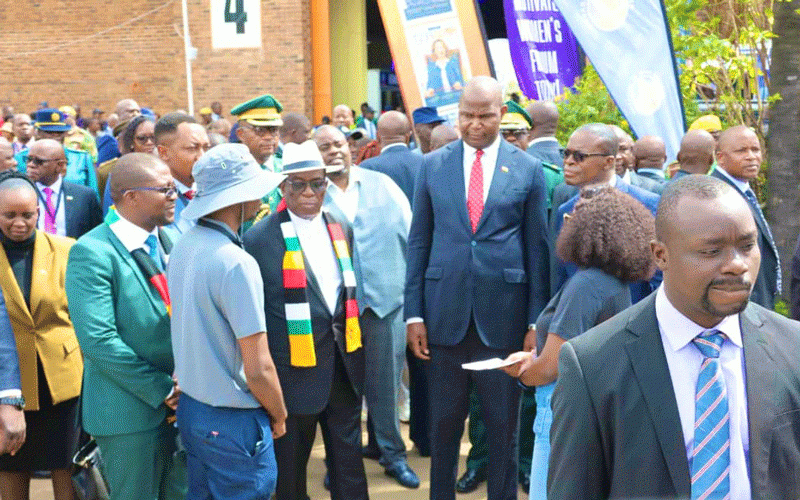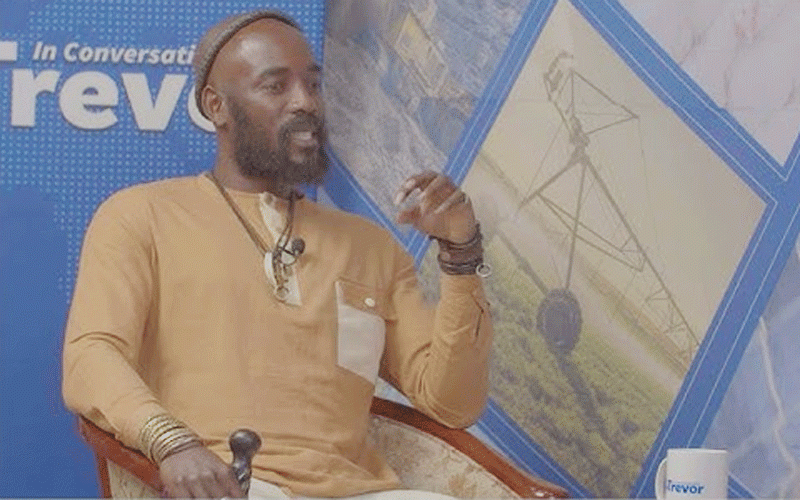
Prominent Matabeleland North traditional leader Chief Dakamela says losing his parents at a young age moulded him to become a leader at a very young age.
Dakamela (CD), from Nkayi who is 29, told Alpha Media Holdings chairman Trevor Ncube (TN) on the platform In Conversation with Trevor that when it comes to life he has the experience of a 60-year-old because of his tough upbringing.
Below are excerpts from the conversation.
TN: Today I'm in conversation with Chief Dakamela of Nkayi District. Chief Dakamela, nkosiyami welcome.
CD: It's my pleasure to be here, to have this opportunity for us to sit down and discuss the issues we will be talking about.
TN: Before going any further, let me just say, thank you to the Legacy Car rental, the Tea Room at ZITF and Phil's Lodge, who have made the Bulawayo series possible.
Nkosiyami I must ask, are you having fun? You are 29 years old you and a chief.
- In Conversation with Trevor: Chisamba: Let’s be proud of ourselves
- In Conversation with Trevor: ‘I tried to change Zanu PF from within’ – Margaret Dongo
- In Conversation with Trevor : How car crash changed my life
- In Conversation With Trevor: ‘We lost our humanity’
Keep Reading
CD: It always depends on the definition of fun, but I would say at times, I have fun, but at times you know it's always a life of ups and downs.
So, even when it comes to having fun, there are times where you have fun, there are times where you do not have fun.
So, you know getting older at that age, remember, I'm 29 years old, but I'm referred to as nkosiyami (my king), referred to as baba (father) by people, who are even at the age of my grandfather and my great grandfathers.
So, it depends sometimes with the situations and also when we are facing challenges, for example, now the leadership of the traditional leaders, okay, maybe if I say the traditional leadership is on demand in terms of showcasing the leadership especially now in times of drought.
Times of challenges where we have challenges all over which are social and economic, so it means that I cannot be having fun now so I guess I was robbed of my fun.
TN: You were robbed of your fun and you are still being robbed of your fun.
- As you are talking I can sense tension and the tension is you are young but your society which is composed of the elderly, people with much more experience than you are demanding leadership from you.
- You are an institution which has a legacy but you are young yourself.
- I mean that's a very tough space to navigate, talk to me about that space.
- You are young and people are demanding you to lead them when you should be looking forward to them leading you?
CD: Yes, it's also like this, Trevor, I came into a space which is way much older.
The institution, which is made way much older, I came into a community which has people who have experience like you are saying and what I have done in terms of trying to create a conducive environment also for those people, the old ones in terms of accepting my age, also putting some confidence in them to say, no, this is our chief this is our leader because we should also remember that it's not easy to come into a space and you are put in there or imposed in there to lead people.
So it's the people's choice to say no you are a chief or some will just say, no, we will not respect you.
They will undermine the leadership, especially when we are at this age. Twenty-nine-years old leading people who are 70 years, 80 years old, it also reminds me of something that this other old man.
He passed away, may his soul rest in peace, was saying, you are still young.
They were in a round table, I think it was in the Ministry of Education, so, they were debating about issues.
How to do this, so, there was this young man who just came into the space who then said ‘I think we should do it like this.’
He prescribed ways to do things. Then the old people said ‘haa my boy we have been doing these things for 20 years. So you cannot just tell us (what to do).’
So this guy says ‘but you have been doing it for 20 years and you have been doing it wrongly.
You understand, there is that tension where you come in with new ideas, you come in with a new trajectory but then people are reluctant to follow unless and until you produce results.
So I have positioned myself like this. The saying goes, where they are saying the greatness of the ocean is that it lies below the rivers.
TN: I like that I have seen you explaining that, sorry for jumping in, I love it absolutely love it. Please proceed and explain it.
DC: So, I have positioned myself to say’ I let them, I let the ideas, I become humble I just…
TN: You are the ocean?
DC: Yes, I'm the ocean so that they come in with ideas, they come in with some directions and everything I just accommodate.
That's how I'm providing leadership but then in the institution of traditional leadership.
Remember, we have Chief's Council, we have senators, it then becomes difficult for me to even utilise this concept because we have an institution which has its bureaucracy, which has its own leaders but then they are not really looking for my leadership because that is an institution which believes it has its president, vice president and also we have the chairman and also the members of the Chief's Council.
It becomes different but in my community, they only have me to lead them, yeah so
TN: And perhaps that's the most important place for leadership.
- But you had an option nkosiyami to say, hey guys I’m 24. You know I will go to Johannesburg, London and so forth and actually this institution of yours is old.
- I'm not interested in this, you know. Why did you feel you had the responsibility to take on this the chieftainship and why?
CD: In terms of my age I'm like we have established, I'm 29 years old, but in terms of the things that I gone went through I'm more than 50/60 years old…
TN: Explain that to me. Explain that to us how can you be 29 and be 60 years old.
CD: It's like the things that I have been through…. some of the people haven't been through those things.
So, sometimes, you know experience, it drives someone to be more mature.
So, maybe, if I put it that this way, you know, we have people who have grown in areas like rural areas and that responsibility because sometimes if I come into Bulawayo, even if you go to Harare, most people who own houses are the people who grew up in the rural areas.
So when they came into Bulawayo, when they came to the central business district, they had an intention.
They knew what they were coming from they came to develop or they came to better their lives and also for their parents.
So that sense of responsibility and also the things that they have gone through.
So, you would see someone, you find someone, at Nandos or KFC or you find someone and he takes a bite of, maybe, first, Chicken Inn or, first KFC.
When they are taking that bite, sometimes, you know those tears of joy.
To say, finally, when they are looking at where they are coming from, you know it, then comes the tears of joy. To say I have actually made it.
So that experience it can then be translated to more than 29 years or to more than what people see in terms of counting the age.
So, I want to, maybe, reveal the things that I have been through.
Some of the things are a weakness and some the things are strengths But I have been through a lot.
TN: You have been through a lot because your father died when you were 16 years old?
Shall we go there and explain to us the lineage when you took over and where you took over from. Where does the chieftainship come from to the point where you are right now?
CD: My father died when I was in Grade 2. He died in 2002 and then I was left with my mother and then we went through all those things.
A lot of things, negative things, which actually shaped who I am and then also in 2015, my mother passed away through a car accident with my stepfather and my younger brother.
So, they met their fate On that day, all of them and then since 2002, 2003, 2004.
Then there was a vacancy, so they then had to appoint my father's aunt to become a regent chief (Chief Hleziphi Dakamela.).
That's when she acted from then until she passed away I think, it's 2016/2017 in the United Kingdom.
TN: And then you took over from her?
DC: Then from 2017, there was also a vacancy until I took over in 2019. So that's when I took over the chieftainship in 2019.
TN: But you had your father's father was it? Am I right, Chief Kula Dakamela, should we take it a little bit back?
CD: Yes, my father was Kula. Yeah I just have bits of memories because I was still young.
So in 2002 I had, in comprehension, and so much memories from him and he did not spend so much time with us.
So, I can't really say I can say a lot about him but I can hear people talking about him that there was potential and I must say this, I'm 29 years old and that's when my father passed away.
Today, at the age of 29, my apologies, yeah, so he passed away at the age of 29.
So I'm also at 29! I don't know what from now because I'm still at the same age with my father.
So the lineage, it comes from, it's my father Kula Dakamela, then my grandfather who was Bekithemba Dakamela.
So, that is my middle name. So, it comes from my grandfather, then there was Minga Dakamela, Chief Senator and then his father Cele Mbuya and his father I think it is Dakamela.
TN: It's quite, so it's a lineage, it's a tense that has been around for a long time. I want to push you for the benefit of people out there.
- You say you have gone through stuff which is , which has formed who you are. I would like you to share some of that with us.
- What is it that has formed who you are, I mean the deep secrets, you can leave those out but I'm interested because clearly this is something important that you have gone through.
- These are things that are important that have made a 29 year old have the wisdom of a 60-year-old.
- Do you want to take us into your confidence as far as that is concerned?
CD: Maybe, if I may put it this way, Trevor, remember I said my father passed away in 2002 when I was Grade 2. I know there are some more orphans.
TN:Great, how old were you? Is that nine years old?
CD: Yeah, nine to 10 years old, I think let’s say 10 years and then that fatherly love that fatherly guidance, was just taken away from me and like I'm saying, he was 29 years old.
So, it has just taken away from me then I had to survive with my mother and then a stepfather.
So there, you know that fatherly love is needed and also when I was born I was given the name Chief Mbusi, meaning a ruler.
So it means they knew that I was going to be a chief. So, that guidance is needed. Remember if you if you look at most monarchies, chieftainships, kingdoms and there is that guidance to guide you.
They mould the future leader. They know what you should become, so there are steps that you go through.
So, those steps were taken away from me and also they were taken away from the community because you know we should institutionalise the chieftainship processes.
And the processes and then that did not happen because there had been a vacancy from 2002 up to 2019.
There was just a regent chief, so when I was growing up we had to move from Bulawayo.
In 2008 that drought everyone went through it. You become a chief before you even inaugurated because you are born a chief.
I was a chief all along with no guidance going through all those things which are not chiefly, going to South Africa at a young age, going through stuff you know and up to the day.
Also when I lost my mother that was very painful for me because there were times and always there is always a time in that age that I was in 15 and 16 years.
- “In Conversation With Trevor” is a weekly show broadcast on YouTube.com//InConversationWithTrevor.

